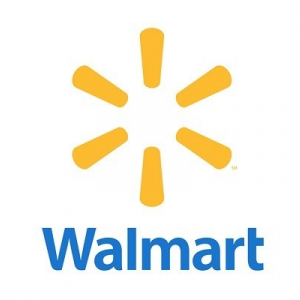Job Description
Position Summary...
What you'll do...
Maintains pharmacy systems and technology (for example, inventory systems, automated medication counting machines) by preparing informational and related records and reports to ensure accurate data and system compliance with policies and regulations; monitoring inventory levels and expiration dates for pharmaceuticals; calibrating machines; applying settings to pill or capsule specifications to minimize breakage; ensuring medications are continuously replenished by utilizing the computer and/or scanner screen; and troubleshooting pill cell issues (for example, jamming) throughout production.
Maintains and tracks medication inventory by sorting, placing, and storing freight in appropriate locations; restocking and replenishing medication in appropriate location; reporting low stock levels; ensuring stock rotation on a first-in, first-out basis to assist in shrinkage control; performing inventory cycle counts; assisting with physical counts for inventories; creating reports using inventory information systems; and monitoring prescription inventory for expired pharmaceuticals.
Supports facility with reporting and paperwork to ensure productivity and pharmaceutical integrity by entering and modifying pharmaceutical data on system and forms; processing and submitting paperwork; creating and maintaining documentation (for example, files, manuals, forms, records, supplies) and communications (for example, memos, correspondence); identifying and resolving discrepancies in record or files; preparing reports of pharmacy activities and inventory (for example, state board mandated testing of counting devices); and informing management about incorrect or inefficient processes and improper service procedures.
Promotes and maintains the pharmacy's professional reputation and delivers patients with pharmacy products and services in accordance with local, state, and federal laws and corporate policies and procedures by assisting the pharmacist in the prescription fulfillment process; stocking and rotating merchandise and supplies from distribution centers and suppliers; handling claims and returns; completing, maintaining, and securing paperwork, forms, and other required documentation; and maintaining a safe and clean work environment.
Ensures fulfillment of pharmacy prescriptions in an automated central fill pharmacy in order to maintain a continuous and consistent work-flow to meet daily production and quality goals by using the scanner to identify and select pharmaceutical product and quantity for prescription orders; verifying the size and strength of the product before processing order; verifying display for pack and quantity; entering expiration date and lot numbers; labeling prescriptions; weighing medication for accuracy of quantity; counting or pouring medication for prescription orders; preparing packages and distributing medications in a fast-paced production environment; and replenishing automated counting machines.
Maintains quality, accuracy, and integrity of inventory (for example, pharmaceuticals, supplies) by utilizing automated inventory control scanner and system to track and ensure the timely and appropriate delivery and stocking of pharmaceuticals and supplies; ensuring adherence to and documentation of inventory control procedures (for example, product strategies, product description discrepancies); auditing and testing pill cell performance per prescribed schedule and procedures; managing pill cell information database; troubleshooting issues with pill cell performance; identifying and properly discarding hazardous waste; processing recalled and expired pharmaceuticals; and disposing or processing return of outdated stock for credit.
Minimum Qualifications...
Outlined below are the required minimum qualifications for this position. If none are listed, there are no minimum qualifications.
Minimum Qualifications:Meets state requirements to work as a Pharmacy Technician, such as minimum age, qualification, registration, certification, and/or licensure when required by the State Board of Pharmacy. Holds an active/valid national certification certificate issued by PTCB (PTCE) or NHA (ExCPT).
Preferred Qualifications...
Outlined below are the optional preferred qualifications for this position. If none are listed, there are no preferred qualifications.
Microsoft Office, Operations, Pharmacy Technician, Retail Industry
Primary Location...
9600 PARKSOUTH COURT, ORLANDO, FL 32837-0000, United States of America
Walmart Inc.
Bentonville, AR
Walmart Inc. is an American multinational retail corporation that operates a chain of hypermarkets, discount department stores, and grocery stores. Headquartered in Bentonville, Arkansas, the company was founded by Sam Walton in 1962 and incorporated on October 31, 1969. It also owns and operates Sam's Club retail warehouses. As of April 30, 2019, Walmart has 11,368 stores and clubs in 27 countries, operating under 55 different names. The company operates under the name Walmart in the United States and Canada, as Walmart de México y Centroamérica in Mexico and Central America, as Asda in the United Kingdom, as the Seiyu Group in Japan, and as Best Price in India. It has wholly owned operations in Argentina, Chile, Canada, and South Africa. Since August 2018, Walmart only holds a minority stake in Walmart Brasil, with 20% of the company's shares, and private equity firm Advent International holding 80% ownership of the company.
Walmart is the world's largest company by revenue—over US$500 billion, according to Fortune Global 500 list in 2018—as well as the largest private employer in the world with 2.2 million employees. It is a publicly traded family-owned business, as the company is controlled by the Walton family. Sam Walton's heirs own over 50 percent of Walmart through their holding company, Walton Enterprises, and through their individual holdings. Walmart was the largest U.S. grocery retailer in 2019, and 65 percent of Walmart's US$510.329 billion sales came from U.S. operations.
The company was listed on the New York Stock Exchange in 1972. By 1988, Walmart was the most profitable retailer in the U.S., and by October 1989, it had become the largest in terms of revenue. Originally geographically limited to the South and lower Midwest, by the early 1990s, the company had stores from coast to coast: Sam's Club opened in New Jersey in November 1989 and the first California outlet opened in Lancaster in July 1990. A Walmart in York, Pennsylvania opened in October 1990: the first main store in the Northeast.
Walmart's investments outside North America have seen mixed results: its operations and subsidiaries in the United Kingdom, South America, and China are highly successful, whereas its ventures in Germany and South Korea failed.
-
IndustrySales/Retail
-
No. of Employees2200000
-
Website
-
Jobs Posted16872


